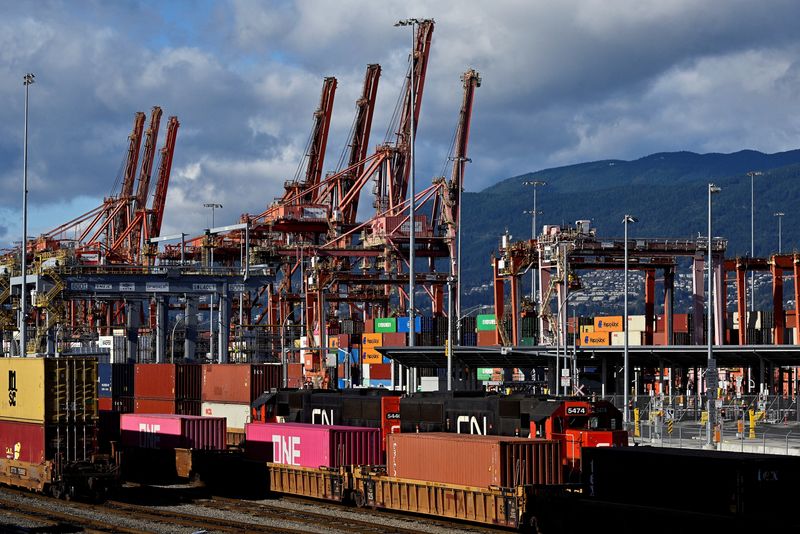Canada is currently facing a significant disruption in its exports of canola oil and forest products, primarily due to a labor dispute at West Coast ports that began earlier this week. The situation involves a limited strike by longshore foremen alongside a complete lockout of Local 514 of the International Longshore and Warehouse Union, enforced by the B.C. Maritime Employers Association. While bulk grain shipments remain exempt from these labor actions, the same cannot be said for canola oil and forestry products, which are currently not being loaded onto vessels at Pacific ports. This stoppage represents a major concern for producers, as it directly affects their revenue and market presence.
The financial implications of this disruption are significant, with estimates suggesting that each day without canola oil shipments equates to around C$4 million in lost revenue. Chris Vervaet, the executive director of the Canadian Oilseed Processors Association, highlighted the urgency of the situation, asserting that the organization represents roughly 95% of Canada’s canola and soybean crush capacity. The association is pressing for governmental involvement to assist in facilitating negotiations between the two conflicting parties and to expedite a resolution that would allow exports to resume.
Federal Labor Minister Steven MacKinnon has echoed these sentiments, emphasizing that both the union and employers have a shared responsibility to come to an agreement. He criticized the lack of tangible progress in negotiations, characterizing the situation as concerning due to the absence of urgency exhibited by both sides in resolving the dispute. MacKinnon noted that not only is the canola oil export sector affected, but there is also a smaller stoppage impacting container traffic at the Port of Montreal, pointing to a broader trend of labor-related disruptions across Canadian ports.
In terms of export volumes, Canada is a significant player in the global canola oil market, with approximately one million metric tons shipped annually through the Port of Vancouver. This makes Canada the leading exporter of canola oil, underscoring the value of this commodity within the country’s agricultural sector. Canola oil is the most lucrative component of the crop, and its halted exports could potentially cause long-term ramifications for Canadian producers if not resolved promptly.
In addition to canola oil, the labor dispute has significant implications for Canada’s forest products industry. The Forest Products Association of Canada has also called for federal government intervention in the matter, emphasizing that wood, pulp, paper, and their byproducts account for about 17% of Vancouver’s container exports and 14% of Montreal’s. Such statistics illustrate the pivotal role that these sectors play in the overall economy, making the resolution of the labor dispute all the more critical.
Overall, the ongoing labor dispute at West Coast ports raises complex challenges for Canadian exporters, particularly in the canola oil and forestry industries. As companies face mounting financial losses amid the export stoppages, there is an urgent call for intervention from the federal government to facilitate negotiations and restore normal shipping operations. The longer the standoff continues, the greater the potential repercussions on Canada’s economic stability and its standing in the global marketplace for these essential commodities.

